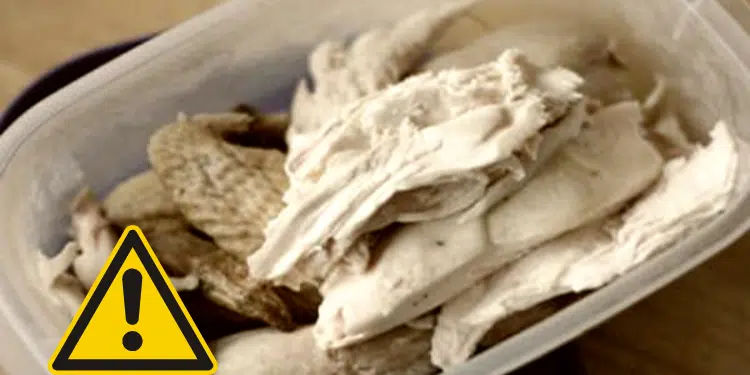Reheating leftovers is a convenient way to enjoy meals again, but not all foods are safe to reheat.
Certain dishes can develop harmful bacteria or release toxic compounds when reheated, putting your health at serious risk.
To keep your meals safe and delicious, it’s crucial to know which foods are best avoided when it comes to reheating.
Here are 7 foods you should never reheat and why doing so could have potentially dangerous consequences.
1. Rice
Reheating rice might seem harmless, but it can pose a significant health risk if not handled properly.
Why It’s Dangerous:
- Rice can contain Bacillus cereus, a bacterium that produces toxins when rice is left at room temperature after cooking.
- Reheating doesn’t destroy these toxins, which can cause food poisoning, including nausea, vomiting, and diarrhea.
Safety Tip:
- Store leftover rice in the refrigerator immediately after cooking and consume it within one day.
2. Potatoes
Cooked potatoes left at room temperature for too long can become a breeding ground for harmful bacteria.
Why It’s Dangerous:
- Clostridium botulinum, a bacterium that thrives in low-oxygen environments, can grow on improperly stored potatoes. Reheating won’t eliminate these bacteria or their toxins.
Safety Tip:
- Refrigerate cooked potatoes promptly and consume them without reheating, or eat them cold in salads.
3. Chicken
Chicken is a staple in many diets, but reheating it improperly can make it dangerous to eat.
Why It’s Dangerous:
- Chicken has a high protein content that changes its structure when reheated, making it harder to digest.
- If not reheated evenly, bacteria like Salmonella can survive, potentially causing foodborne illness.
Safety Tip:
- If you must reheat chicken, ensure it’s heated to an internal temperature of at least 165°F (74°C) to kill any bacteria.
4. Mushrooms
Mushrooms are rich in proteins and minerals but are highly perishable.
Why It’s Dangerous:
- Reheating mushrooms can lead to the breakdown of their proteins, producing compounds that may upset your stomach or cause food poisoning.
- Improper storage increases the risk of bacterial growth.
Safety Tip:
- Store cooked mushrooms in the refrigerator and consume them cold or freshly prepared.
5. Eggs
Eggs are highly nutritious but can become toxic when reheated.
Why It’s Dangerous:
- Reheating scrambled or boiled eggs can cause them to release sulfur compounds, which may lead to stomach upset or worse.
- Eggs are also prone to contamination by bacteria like Salmonella if left out too long.
Safety Tip:
- Eat eggs immediately after cooking and avoid reheating them altogether.
6. Spinach and Leafy Greens
Leafy greens like spinach, kale, and celery are healthy additions to any diet but shouldn’t be reheated.
Why It’s Dangerous:
- These greens contain nitrates that can convert to nitrites and nitrosamines when exposed to high heat, compounds linked to cancer and other health issues.
Safety Tip:
- If you need to reheat dishes containing spinach, use a low, gentle heat and avoid prolonged cooking.
7. Fish
Fish is a lean protein that’s best consumed fresh and not reheated.
Why It’s Dangerous:
- Reheating fish can alter its flavor, texture, and nutrient composition.
- Some types of fish can release histamines, which can cause allergic reactions or food poisoning.
Safety Tip:
- If you have leftover fish, eat it cold or gently reheat it at low temperatures.
How to Safely Handle Leftovers
To reduce the risks associated with reheating foods:
- Refrigerate Promptly: Store cooked food in airtight containers within two hours of cooking.
- Reheat Evenly: Use an oven, stove, or microwave to heat food thoroughly and evenly to at least 165°F (74°C).
- Avoid Multiple Reheats: Reheating food more than once increases the risk of bacterial growth.
- Consume Within a Few Days: Most leftovers should be eaten within 2–3 days to minimize health risks.
While reheating leftovers is convenient, not all foods are safe to heat again. Foods like rice, chicken, and potatoes require extra care to prevent harmful bacteria and toxins from causing illness.
Understanding these risks can help you make safer choices in the kitchen, protecting yourself and your loved ones.
Share this article with friends and family to raise awareness about the dangers of reheating certain foods and help them stay safe!

